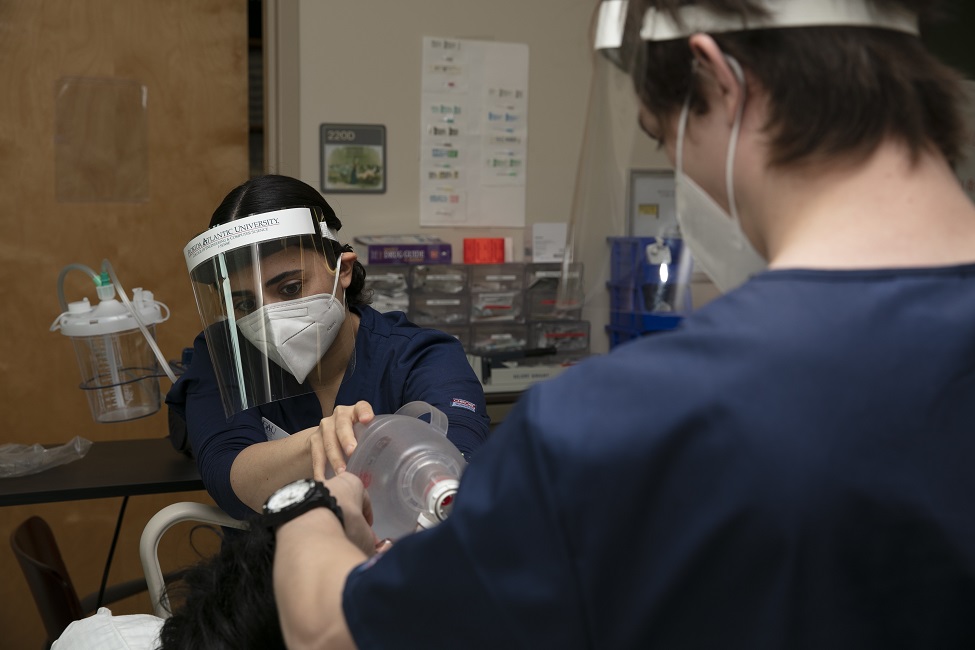Nurses Remain Passionate Despite Historical Issues in Need of Reform

(Photo by Alex Dolce)
Cross Country Healthcare, Inc., a market-leading tech-enabled workforce solutions platform and advisory firm, announced its annual national survey of nursing professionals and students. Overall, the study revealed that nurses remain passionate about patient care, citing helping people through meaningful work (66 percent) but highlighted areas of dissatisfaction and ongoing industry challenges, including pay rates/compensation (86 percent), staff shortages (53 percent), stress (39 percent) and burnout (35 percent) as the top career dissatisfiers facing the profession. The survey, conducted in collaboration with Florida Atlantic University’s Christine E. Lynn College of Nursing, provides meaningful and actionable insights to equip health care facility leaders, academia, nursing students and professionals with the most pertinent issues challenging this occupation.
"Nursing is one of the most trusted professions in the world. A nurse is with you at all life stages—from birth to death and everything in between. They make life-changing decisions daily,” said Hank Drummond, Ph.D., senior vice president and chief clinical officer. “This study allows us to check the pulse on today’s challenges facing the profession and address them head-on by hearing their concerns and taking action.”
Among other key findings:
- Student nurses reported they are most concerned about stress (45 percent), not enough staff to meet demand (35 percent) and feeling overworked (27 percent).
- Nearly one-third (28 percent) of nurses indicated their desire to leave the profession had increased dramatically since the pandemic, while those who said their desire to stay had increased since the pandemic dropped from 24 percent last year to 4 percent this year.
- Doing meaningful work, income and lifestyle are the main drivers for staying in the field. However, almost half (48 percent) of currently employed nurses said they would not become nurses again if they could talk to their former selves or did not know if they would.
- Thirty percent of nurses said they plan to work in the profession for the foreseeable future, although 23 percent plan to look for a new career in one to two years and 13 percent plan to retire in one to five years.
"The results of our survey of nearly 2,000 employed and student nurses point to ongoing challenges that the profession faces, providing us with a roadmap to address their concerns with innovative strategies that meet the needs of the nurse and the health care system," said Safiya George, Ph.D., dean and professor at FAU’s Christine E. Lynn College of Nursing.
The Christine E. Lynn College of Nursing offers accredited programs at all levels to prepare and train students including various tracks for a B.S.N., Master of Science in Nursing, Ph.D. and D.N.P. focused in caring science. A B.S.N.-D.N.P. program with a psychiatric mental health nurse practitioner concentration and post-graduate dermatology and telehealth certificate courses and other concentrations that intersect innovation and technology are also offered to address health care provider shortages.
Cross Country Healthcare is deploying strategies to transform the nursing profession, including an ongoing examination of pay rates and retention practices, identifying new pathways for education, licensing, and talent development, focusing on flexibility and growth opportunities and investments toward innovation to strengthen the nursing workforce.
"Nurses are passionate but exhausted, and there is room for meaningful changes. The demand for patient care is increasing exponentially," said Michael Skovira, chief medical officer at Cross Country Healthcare. "We must change how we educate, train, hire, manage and treat our nurses. We have all the tools to start now, but we cannot implement these practices if we continue to blame the pandemic for a situation that has been growing for years. We need to come together as an industry and start now."
Cross Country has launched several initiatives and continues to invest heavily in technology and digital transformation to support these strategies, including the new CrossCountry.com as a fresh way to engage nurses in a seamless frictionless manner.
ABOUT THE STUDY
This national survey, titled "The Future of Nursing: A Profession in Crisis," was conducted with 1,780 nursing professionals and students at healthcare and hospital facilities. The online survey was conducted between May 11 and June 24, in partnership with Florida Atlantic University's Christine E. Lynn College of Nursing.
-FAU-
Latest Research
- 'Frazzled' Fruit Flies Help Unravel How Neural Circuits Stay WiredFAU scientists have discovered that the protein Frazzled (DCC in humans) fine-tunes neuron connections, keeping signals fast and precise - key to a fruit fly's rapid escape reflex and healthy nervous system.
- FAU Innovation Pilot Awards Drive Faculty Research from Lab to MarketThe FAU pilot program offers $500 to $15,000 in seed funding to help researchers turn early discoveries into market-ready technologies, fostering prototypes, industry partnerships and real-world impact.
- Nearly 70 FAU Faculty Named Among World's Top 2% of ScientistsNearly 70 FAU faculty are ranked among the world's top 2% of scientists by Stanford-Elsevier, recognizing their global research impact across 22 fields and 174 subfields from engineering to humanities.
- FAU Researchers Make Great 'Strides' in Gait Analysis TechnologyA first-of-its-kind study explored whether more accessible technologies such as a 3D depth camera could accurately measure how people walk, offering a practical alternative to traditional gait analysis tools.
- FAU Historian Traces How U.S. Nursing Homes Evolved into Big BusinessA historian explores how the Americana Corporation shaped modern nursing homes, revealing how architecture tied aging, care and profit into a system that still defines long-term care in the U.S. today.
- Where a Child Lives - Not Just Diet - Raises Type 2 Diabetes RiskFAU researchers found poor walkability, litter, and reliance on assistance programs are strongly linked to type 2 diabetes risk in young children, based on a large nationwide study.






